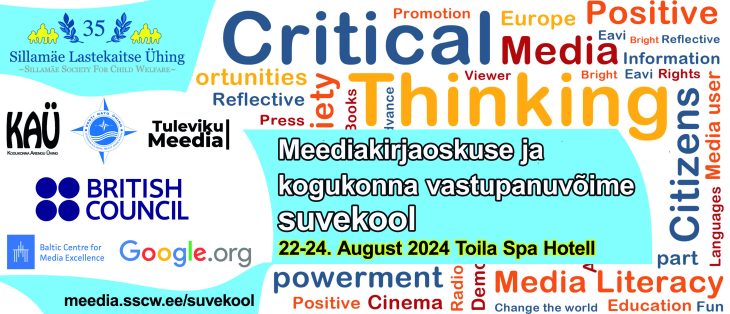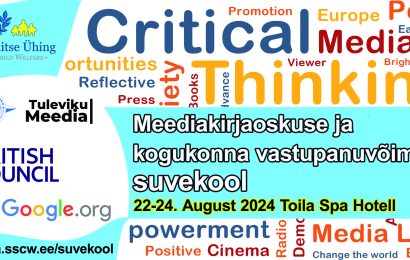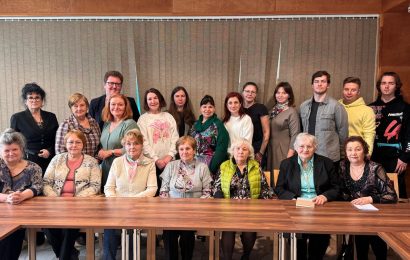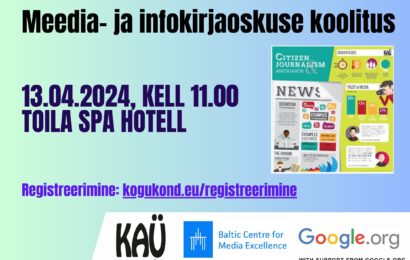
Avaleht
Osale meediakirjaoskuse ja kogukonna vastupanuvõime suvekoolis 22.-24.08.24 Toila Spa Hotellis.
Hea sõbrad ja huvitundjad!
Kutsume osalema Meediakirjaoskuse ja kogukonna vastupanuvõime suvekoolis, mis toimub 22.-24. augustil Toilas!
Suvekooli peamine eesmärk on suurendada sihtrühmade esindajate teadmisi ja oskusi meediapädevuse, digitaalse aktivismi ja vastupanuvõime kohta ning edendada arutelu teemal kuidas sotsiaalmeedia ja tehisintellektuaalsus mõjutavad õpetajaid, noori ja õppeprotsessi.
Suvekooli raames räägime mitmel olulisel teemal: desinformatsioon, propaganda, eraelu puutumatus, info- ja küberturvalisus ja meediakultuur, meediakriitika, psühholoogia ja käitumisharjumused ning tehisintellekt ja kommunikatsioon.
Suvekooli korraldajad: Kogukonna Arengu Ühing, Eesti NATO Ühing, MTÜ Tuleviku Meedia ja Sillamäe Lastekaitse Ühing (SSCW).
Suvekooli programm ja registreerimine: https://forms.gle/7ULv4fb6pUn31YGN6
Registreerimine kestab kuni 18.08.2024.
Suvekool on tasuta! (Korraldaja poolt on tagatud: koolitused, toitlustus ja majutus!)
Lisa teenused: spa külastus, kultuuriõhtud ja järeltõlk (on lisa teenusena osalustasu maksmisel): 25 eur – täiskavanutele, 15 eur – pensionäridele ja noortele.
Töökeel: eesti ja osaliselt vene (osa koolitustest toimub vene keeles, ning vajadusel on tagatud tõlge).
Suvekooli toetavad: Baltic Centre for Media Excellence ja Google ning Briti Nõukogu Eestis British Council Estonia (sotsiaalse sidususe toetamiseks People To People Cultural Engagement programmi raames).



